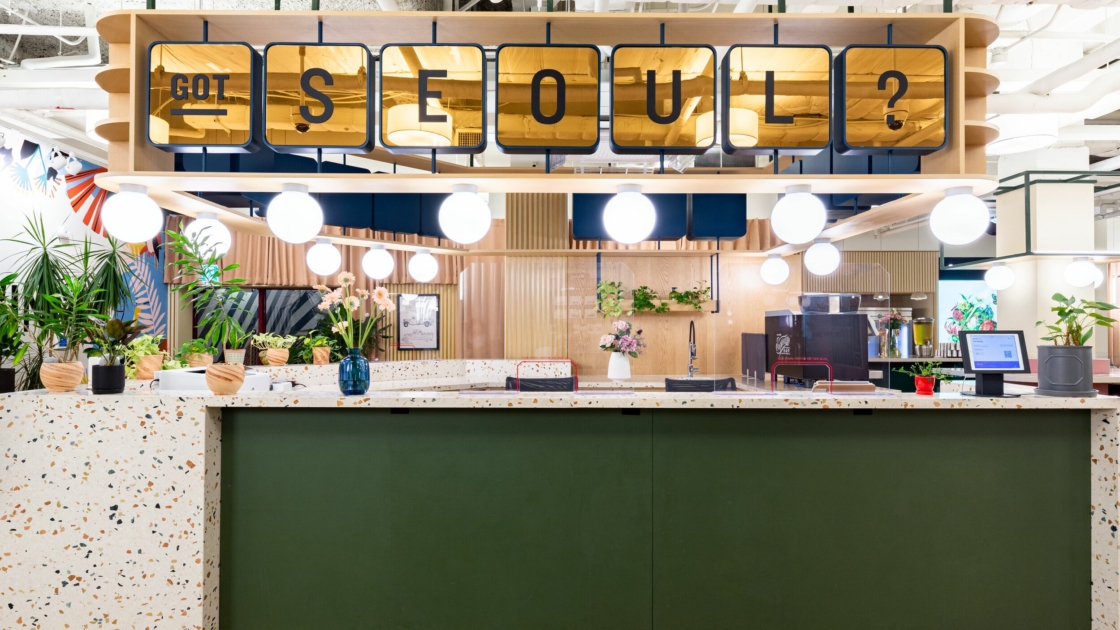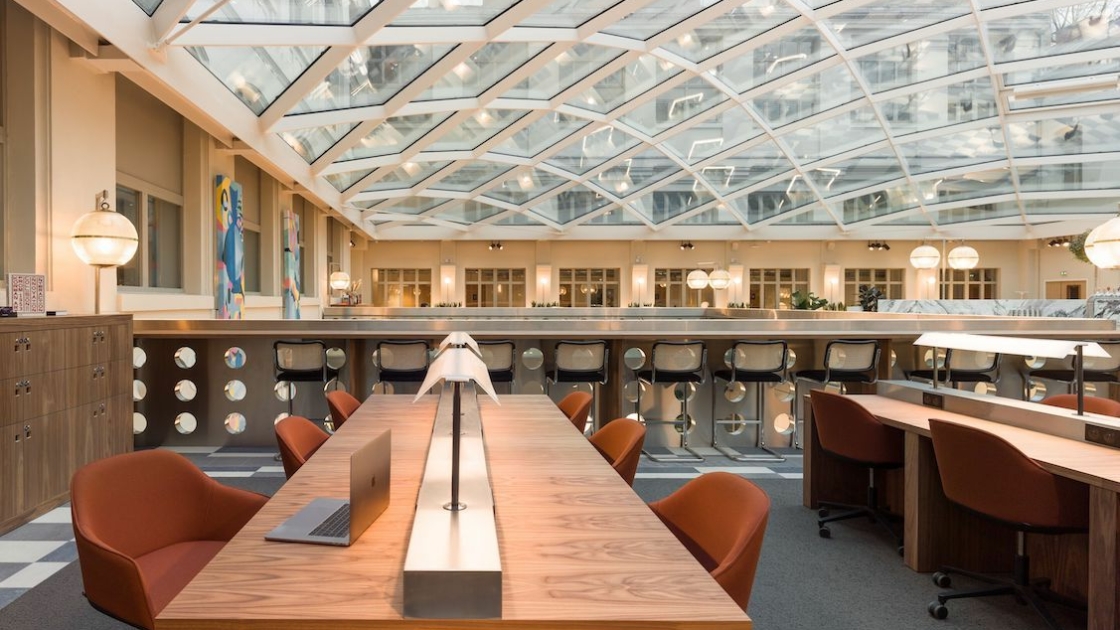Flexible space could account for 13% of total U.S. office supply by 2030. But is it only for small companies and shorter terms? And will a recession trump its rewards?
When it comes to flexible office leasing versus traditional office leasing, WeWork has received its fair share of raised eyebrows and questions. Brokers, landlords, business owners, and real estate professionals all have valid concerns:
Does it make sense for larger organizations? How does it benefit businesses financially? How flexible is it really? What happens if there’s a recession?
As the largest flexible real estate provider, WeWork expects these types of questions, concerns, and even a few misnomers to bubble up in conversation. In this article, we’ve compiled the most common myths we hear about flexible leasing.
Myth #1: Flexible leases only make sense for small companies or individuals, not bigger organizations
While WeWork may have originally appealed to freelancers and scrappy startups in 2010, our member pool has diversified quite a bit since the early days. As we’ve grown, so has the average size of our members. (Think Slack, Puma, and IBM)
Why? Because larger enterprise companies—with aggressive goals, product launches, and expansion plans—benefit just as much from flexible spaces.
When enterprise-level companies need to hire a large number of people quickly, flexible leases and spaces immediately open that door. When a high-growth business wants boots on the ground around the globe, it’s easy to expand to WeWork’s existing 800+ worldwide locations.
Flexible office supply has grown by an average 26% annually since 2010, and why 36% Y-o-Y growth is anticipated by YE 2019.
CBRE’s recent report on the state of flexible office space
Every growing business experiences uncertainty or volatility, regardless of its size. Flexible office space offers a fluid solution for both small and large companies, reducing the risk of long-term lease liabilities.
Myth #2: Flexible leasing costs are unpredictable
Flexible leasing actually allows companies to plan better for a more unpredictable future. The unfixed nature means there’s more room for negotiation and companies won’t be stuck with terms today that don’t make sense for their business tomorrow.
According to a recent podcast with WeWork and CBRE, clients say that although they may be confident in the overall direction of their business, they could be off on the details by 10 percent to 25 percent depending on unforeseen factors such as the volatility of the market, of their industry, and of the impact of technology on their business.
This is why WeWork opts to offer flexible office space that can grow—or slow—with our members. If a company wants to rent 5,000 square feet of office space in Seattle for a year with plans to expand to Stockholm soon after, we take that into account when building out a deal structure.
If there’s an unexpected reduction in headcount, WeWork empowers businesses to reallocate that space to other businesses, or renegotiate with WeWork so they’re not paying for unused space.
Working directly with property owners, brokers, and company leaders, WeWork tailors flexible real estate deal structures that make sense for everyone involved.
Myth #3: Flexible lease lengths are only a short-term option
Many companies choose WeWork for the long term, thanks to our flexible shorter terms. In fact, the average commitment term of our membership agreements has nearly doubled from eight months as of December 1, 2017 to more than 15 months as of June 1, 2019.
This isn’t unique to WeWork either. According to CBRE Research about The U.S. Flexible Office Market in 2019, metros that offer flexible office space are actually seeing a boost in longer lease terms compared to traditional lease offerings as well.
Part of that is because traditional lease build-outs are costly and time-consuming, while short-term flex space allows companies to only invest in the space they need now, for the employees they have now.
At the same time, flex options are also more fluid when it comes headcounts and spending needs in the future. Companies are able to add more square footage when there’s a spike in hiring, or reduce their footprint if there’s a spending freeze.
In the last two years we’ve seen an even deeper commitment to flexible office spaces. As stated in the CBRE report, “Since 2017, the 10 largest flexible office markets increased their flex-office penetration by 70% compared with 43% in other markets.”
Myth #4: Companies can’t customize shared or flexible workspaces
WeWork offers completely customizable floor plans. Whether clients need one floor or four, a handful of private offices and meeting rooms or a totally open layout, WeWork works hand-in-hand with their members to create a space that fits their unique needs. We encourage our members to customize their space with their company’s branding and can help facilitate these changes prior to move-in, so it’s all them from day one.
Myth #5: If there’s a recession, flexible office space will suffer first
Property markets rise and fall with the economic cycle. And according to CBRE’s research, “A recession will affect the supply-and-demand dynamics of the flexible office market just as much as it will the traditional office market.”
If tenants have both traditional leases AND a flex lease, exiting the flex lease offers a simple cost-saving solution. But if a tenants’ traditional lease expires during a recession, or if they have a rolling lease, they likely won’t make long-term commitments and will weigh the economic benefits of a flex space option.
Volatile headcount will lean toward flex space, where business owners can add or reduce square footage as they need it. Relocating to cities with lower operating costs and flexible office spaces may also be a better option for economically struggling companies.
Regardless of a recession, delivering more flexibility to tenants is here to stay.
Interested in learning more? Give us a call at (646) 389-3922 or visit wework.com/brokers to become a WeWork broker partner today.







